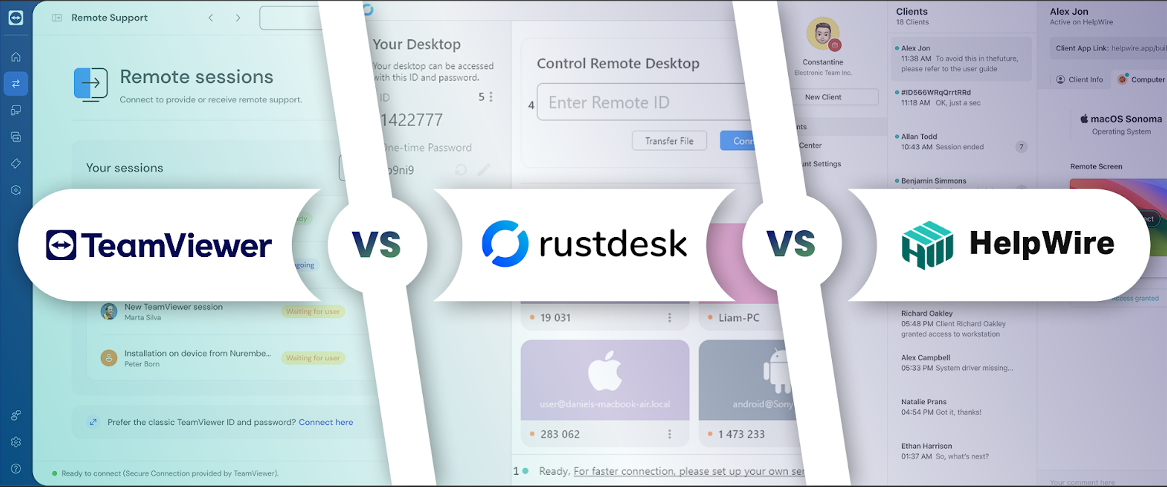
With TeamViewer recently tightening the restrictions on its free tier, many businesses and personal users are now searching for effective, budget-friendly remote desktop alternatives. Two standout contenders in this space are HelpWire and RustDesk. Both offer compelling features, but with notable differences that cater to distinct user needs. In this guide, we'll take a closer look at these two popular TeamViewer alternatives, comparing them across various critical aspects, including pricing, security, performance, user experience, and more.
[..]
Read more...










